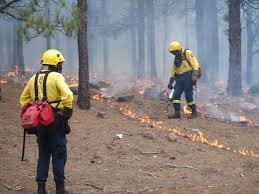EPA’s Top Tips for Breathing Easier in Hot, Smoky Conditions

Doctors and researchers agree: the biggest health threat posed by breathing smoke is from the fine particles, which can lodge deep in your lungs, making it difficult or impossible for your lungs to expel them naturally over time. These microscopic particles – 2.5 microns or smaller – can get into your eyes and respiratory system, where they can cause health problems such as burning eyes, runny nose, persistent coughing and can aggravate illnesses like asthma and bronchitis.
Virtually everyone suffers from even short-term smoke exposures due to air pollution’s harmful effect on our lungs. But for the elderly, children or people with impaired breathing, breathing smoke for even brief periods can pose serious risks. Fine smoke particles can exacerbate, aggravate asthma and chronic heart and lung diseases and even are linked to premature deaths in people enduring these conditions.
Bottom line: For our lungs’ sake, it’s a good idea to avoid breathing smoke wherever or whenever we can. Everyone should take the steps below when smoke – wildfire or otherwise – is present:
- 1. Prevent wildfires from starting. – Prepare, build, maintain and extinguish campfires safely. Be aware of “Burn Bans” and follow local regulations if you intend to burn yard waste or woody debris. Carefully follow all state and local restrictions to prevent forest fires from starting. Be careful not to drag your trailer chains which can spark and ignite dry roadside brush.
- 2. Check local air quality reports. Listen and watch for news or health warnings about smoke. Watch for the Air Quality Index (AQI) reading for your community, or check the report on AirNow.gov. In addition, pay attention to public health messages about safety measures. Often, the most comprehensive information will be on your state’s wildfire blog including the latest local information and smoke forecasts.
- 3. Use common sense. If it looks smoky outside, it’s probably not a good time to mow the lawn, dig up that old broken irrigation line, or go for a run. Anything that causes you to breathe heavier will increase exposure to fine smoke particles. It’s also a good time to encourage your children to take indoor play breaks until the smoke dissipates.
- 4. If you are advised to stay indoors, STAY INDOORS! – take steps to keep your indoor air as clean as possible. Avoid using wood fireplaces, gas logs, gas stoves – and even candles! And it goes without saying: don’t smoke. Smoking harms your lungs and can harm people around you.
- 5. Follow your doctor’s advice – If you have asthma or other breathing impairment, closely follow your doctor’s advice about using your medication and following your asthma management plan. Call your doctor if your symptoms worsen. Talk with your doctor (in advance) about deciding whether and when you should leave the area. Note: If you don’t have an air conditioner, staying inside with the windows closed may be dangerous in extremely hot weather. In these cases, seek alternative shelter, such as with relatives or a cleaner air shelter.
Date: September 7, 2017
Image: Google Images
Coordinator: EnvGuide Team
Source: https://www.epa.gov/newsreleases/epas-top-tips-breathing-easier-hot-smoky-conditions






